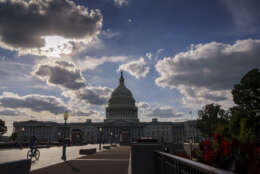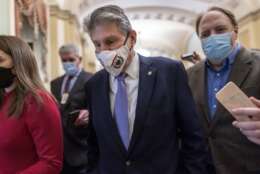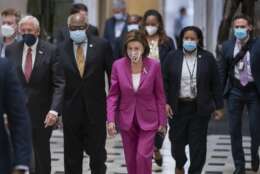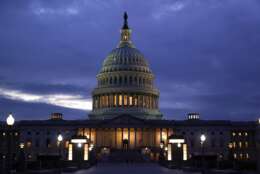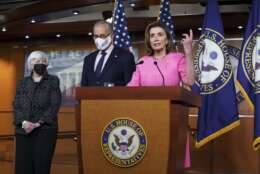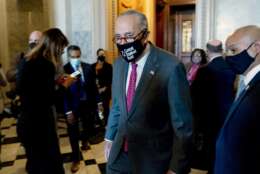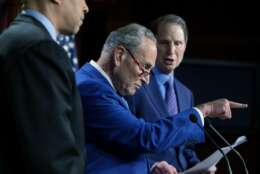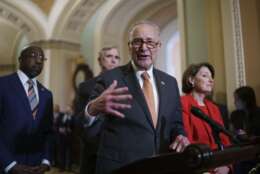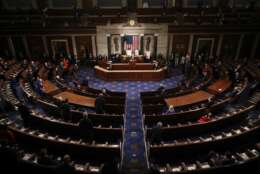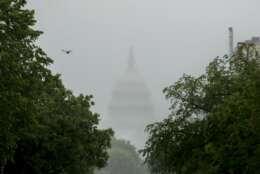Mitchell Miller
-
The continuing resolution for funding the government runs until February 18.
December 06, 2021 -
The debt ceiling is looming closer and the government shutdown is only a couple of weeks away. And the mask mandate continues to roil Congress.
November 22, 2021 -
Congress is out this week and the regular appropriations continuing resolution hasn't got much longer to go. Is a year long CR in the offing?
November 08, 2021 -
The more Congress debates spending, infrastructure and taxes, the more convoluted it gets. It's starting to look like two football teams in the red zone in a game with infinite downs.
October 25, 2021 -
You need a scorecard for the legislative shenanigans going on on Capitol Hill this week.
September 27, 2021 -
The Senate returns to work today as questions hover over the $3.5 trillion spending bill sought by most Democrats.
September 13, 2021 -
Members of Congress include fewer veterans than in past decades, but the ones now in office have been vocal about the situation in Afghanistan.
August 30, 2021 -
In the vaccine debate madness engulfing the country, one might overlook that members of Congress are under no mandate to get vaccinated themselves.
August 16, 2021 -
WTOP Capitol Hill correspondent Mitchell Miller explained further on Federal Drive with Tom Temin.
August 02, 2021 -
A Senate measure would bolster safety for when feds returned to the office. This and more updates from WTOP Capitol Hill correspondent Mitchell Miller.
July 19, 2021 -
Federal Drive with Tom Temin got the latest congressional outlook from WTOP Capitol Hill correspondent Mitchell Miller.
July 06, 2021 -
A crucial week's ahead for Congress. Democrats say they'll go to reconciliation to pass a $6 trillion package, if Republicans don't go along.
June 21, 2021 -
Nothing has quite jelled enough to be headed to the president's desk for signing, but many bills concerning federal agencies and their operations are simmering in Congress.
May 24, 2021 -
More money to expand the IRS and raises for TSA officers - both are on the agenda as Congress returns to Washington this week.
May 10, 2021 -
More parts of the Biden administration's agenda could come into sharper focus after President Biden's address to joint session of congress.
April 26, 2021

